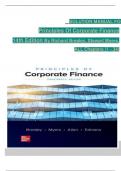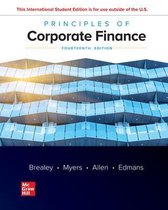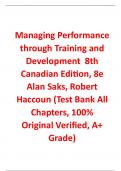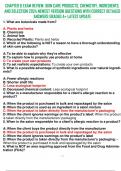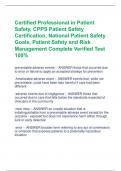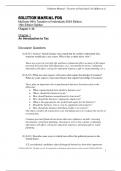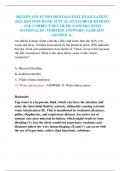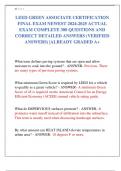Exam (elaborations)
Solution Manual for Principles of Corporate Finance 14th Edition by Richard Brealey, Stewart Myers, Franklin Allen and Alex Edmans, Complete Chapter 1 - 34 | Newest Version
- Course
- Institution
- Book
Solution Manual for Principles of Corporate Finance 14th Edition by Richard Brealey, Stewart Myers, Franklin Allen and Alex Edmans, Complete Chapter 1 - 34 | Newest Version Solution Manual for Principles of Corporate Finance 14th Edition by Richard Brealey, Stewart Myers, Franklin Allen and Alex Ed...
[Show more]
